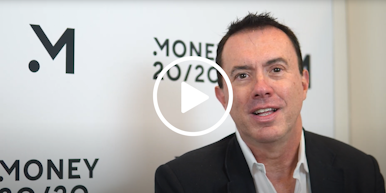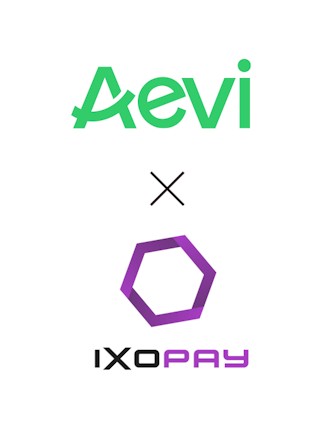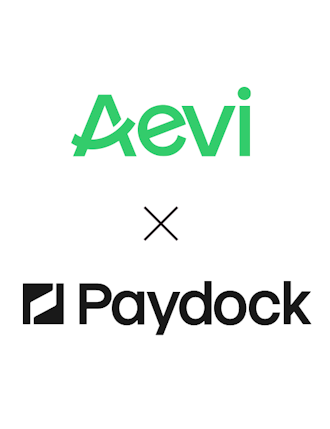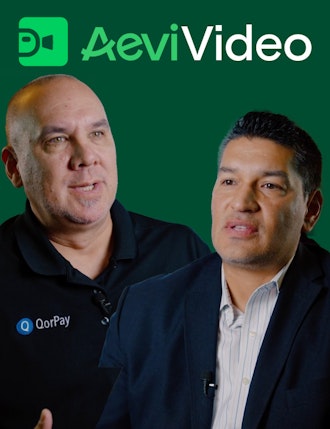The importance of partnerships in payments
Paolo Zambonini, sat down with The Fintech Times at Money20/20 Europe 2022 in Amsterdam.
They discussed the importance of of partnerships & collaboration in payments.
Watch the video on YouTube to learn more about:
- The value of smart data
- The innovation and openness represented in our rebranding project
- Applying different value adds across markets
- Customer journeys for our merchants
Video Transcript
Mark: “Hi, I’m Mark Walker. I’m the Editorial Director at The Fintech Times. I’ve got a fantastic interview lined up with us today. Perhaps you could introduce yourself for our audience?”
Paolo: “Thank you. I’m Paolo Zambonini, and I’m the Chief Operating Officer of Aevi.”
Mark: “Fantastic, thank you very much. Aevi was recently going through a bit of a rebranding exercise. Could you tell us about why that was and why you needed to do that?”
Paolo: “Absolutely. Aevi is leading the way in in-person payments, and we’re an innovative, open organization. The rebranding was an opportunity for us to show the market how innovative and open we are. The branding and the branding strategy also reflect our values of being open, fearless, positive, and honest. We believe that’s exactly what’s driving the market in terms of open collaboration, developing partnerships across our value chain and driving value in in-person payments across the domain, both for merchants and their end customers. And that’s what we believe reflects on the branding strategy and our need to change.”
Mark: “Okay, interesting. So obviously, that means you’re really focusing on lots of partnerships and collaborations. Why is that so important in the payments landscape?”
Paolo: “That’s a great question. I think in terms of the way that the innovation and the innovation landscape continues to change in payments, it’s almost impossible for one organization to dominate each particular area incredibly well. So naturally, developing partnerships enables one to develop additional value throughout the value chain for merchants and customers. Our focus is mainly enabling payments across all domains but specifically in in-person payments. It enables us to go into different markets, different sections, and apply different value ads across different markets. And that’s a very key reason for partnerships.”
Mark: “So do you have like a framework or a guide to help you set up these payments, or is it very much centered around what you’re trying to achieve with that partnership?
Paolo: “Our goal is to basically enable payments, whether they’re online, in-person payments, in the easiest possible way for anybody to make and take payments anywhere across our platform. So that is our focus, and enabling that in multi-region, multi-country, multi-tenant environments is our focus. Whatever partnership helps us deliver that even more globally and scaling that up is a partnership that we’ll look at.”
Mark: “Interesting. So let’s talk a little bit about smart data now as well. I guess, you know, in this day and age, everything’s about data. What does smart data mean to you guys?”
Paolo: “Another great question. For me, in terms of smart data, the data that we are able to use and we are legally allowed to use, I mean, it’s in our interest and our partners’ interest to use that data wisely to make sure we can use that to develop better products, better services. And specifically, from in-person payments, we can develop more informed consumer and customer journeys both for our merchants and the end customer. And that smart data really helps us refine and define what we do and how we plan in terms of next innovations, what are required in a particular merchant environment. And that is a great source of information for us and is obviously incredible value to the merchant as well.”
Mark: “So with the use of smart data, especially here in Europe, PSD2 is kind of a key monitor and regulator for that data. How do you approach that?”
Paolo: “Look, obviously, we use the data that we are allowed to use. And in terms of that, we use it in terms of refining our consumer journeys. And it helps us inform which products we should be looking at and what additional services, value-added offerings we need to add onto our platform but it also provides our customers with insights into consumer journeys. For the data that we are allowed to use, it’s obviously very informative and constructive for us and our partners. So, Aevi, that is obviously a great outcome.”
Mark: “Yeah, absolutely. And I guess thinking about the wider payments landscape and what’s going to drive that in the next 12 months, do you see the use of data being critical to that sort of innovation?”
Paolo: “Absolutely. I think that becomes more and more important as time goes on. Data is always important. It’ll always remain important. It’s not just a trend; it’s a mega-trend in itself. The value of data, how it’s monetized but also how it’s used to inform different parts of the payments journey, of the consumer journey, the merchant information, merchants for our information, for our customers. That is a key source of information. Also, in terms of just orchestration and integration of various platforms into ecosystems, etc., the data that flows through that becomes even more and more important. Using that data wisely and correctly is a great asset to any organization and to drive and enhance the consumer journey forward.”
Mark: “Fantastic. So obviously, we’re here at Money 2020 Amsterdam day two. What have you seen? Anything yesterday, or have you picked up on any kind of interesting trends that you think are going to really make a big headway this year, next year?”
Paolo: “First of all, I think Money 2020 has been a great success. It’s been a fantastic event and incredibly well-organized, as usual. Again, I think that there are certain trends that remain for a while, as opposed to just token things. The data is key, obviously. You’ve seen the progression to software as a service or platforms as a service and moving away from hardware-specific business types. A key focus on platforms and technology and innovation and the continued use of innovation in payments.
The other key trend that continues is just again orchestration and the integration of platforms, again, is a key trend. More importantly, you also have a very close view on in-person payments and how the link is being made to e-commerce and merchants and clients wanting to have anyone make a payment in one domain or the other exactly as seamlessly as possible. That is a key trend that I’ve seen. And then also again, you’ve got your usual topics like embedded finance, which is still nascent but will become more and more important over time.
But again, a number of key trends, but the key thing is that payments are still vitally important to an economy. It’s what we do best. Aevi is very proud of the innovation that we do. We’re very proud of the platform that we have and the services that we deliver. And again, we want to be at the forefront of driving innovation in in-person payments or being able to take and make payments anywhere on behalf of our merchants and clients. And that’s been echoed here in Money 2020.”
Mark: “Fantastic. Thank you very, very much. Enjoyed having you spend some time with us and answer our questions.”
Paolo: “Thanks for the invitation. Thanks very much.”
For media enquiries contact:
Interested in reading more around this subject? Here are some useful articles…














